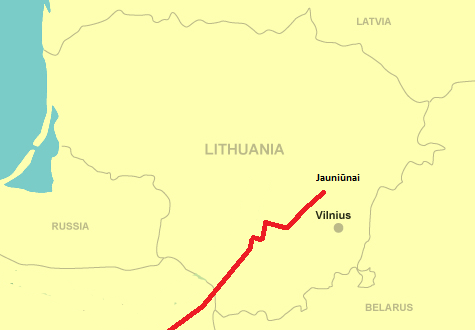Lithuania Extends Polish Link Bid Period
Lithuania’s gas transmission system operator (TSO) Amber Grid is extending by a month the deadline for bidders to express their interest in building the Gas Interconnector Poland-Lithuania (GIPL).
The new deadline, set now for July 28, 2016, has been approved because of “the complexity of the tender, the large volume of documents and potential contractors’ requests,” Amber Grid’s interim spokeswoman Jolita Butkiene told NGE. The bidding process to purchase required pipes for the pipeline is still ongoing. In late June Amber Grid said that the next phase was to to apply for permits to lay the pipes and it hoped to start building the line in the autumn.
Potential bidders include Lithuania's Iremas, Alvora, Kauno Dujotiekio Statyba and Siauliu Dujotiekio Statyba, which built the Kursenai gas transmission pipeline; Germany’s PPS Pipeline Systems, the contractor of the Klaipeda LNG terminal; Linde and TGE Gas Engineering; and Spain’s Sener Enginieria y Sistemas.
But the Amber Grid representative did not confirm the names. “I can say that the interest in entitlement to carry out the project is very big and many different companies have come forward,” she said.

Gas Interconnection Poland–Lithuania (image credit: Wikipedia)
In mid-October 2015, EU’s Connecting Europe Facility (CEF), awarded the Lithuanian and Polish gas project €295.4mn. In Lithuania, the GIPL should cost about €136mn of which €55mn is from the European Union's Connecting Europe Facility. The Polish section is the responsibility of the TSO, Gaz-System.
GIPL is expected to significantly step up Baltic energy security, independence and enhance the prospects of the LNG terminals in the Lithuanian seaport of Klaipeda and Poland’s Świnoujscie. The 165-km, 700-mm pipeline will be able to supply about 2.6bn m³ of gas to Lithuania and 1.8 bn m³ to Poland each year. Both countries also have LNG import terminals, and Poland already imports gas by pipeline from Germany.
Linas Jegelevicius


